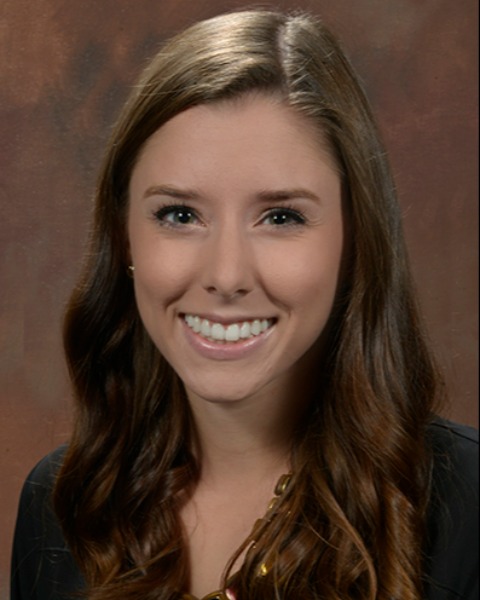Back
HEALTH EQUITY, CARE, DELIVERY, & ACCESS TO CARE
Poster Session
(358) Patient and family perceptions and opportunities for improvement for transition from pediatric to adult cystic fibrosis clinic
Thursday, November 3, 2022
12:00 PM – 12:40 PM ET

Hilary Vogt, PharmD, BCPPS
Pulmonary Clinical Pharmacist
Indiana University Health
Indianapolis, Indiana, United States- PC
Pi Chun Cheng, MD
United States
Presenting Author(s)
Co-Author(s)
Background: Transition from pediatric to adult care can be an area of uncertainty for people living with cystic fibrosis (CF) and their families. Leaving a familiar provider and care team, fear of developing independence in self-care, and logistical barriers are known concerns regarding transition from families and people with CF. There are many barriers to providing transition services in an outpatient clinic including time and workflow constraints, lack of training around transition, disconnection from adult providers, and resource limitations for patients with complex medical or social needs. The primary objective of this project was to survey family perceptions surrounding transition in our CF center and use responses to improve and standardize our current process.
Methods: A survey was conducted which explored the perception and barriers associated with transition. Responses were collected from patients and their caregivers if the patient was over 12 years of age. The survey asked how families would like to receive transition information, confidence in self-care skills, and primary concerns about transition from pediatric to adult care.
Results: Surveys were collected from 35 patients and 31 caregivers. The average patient age was 15.2 years (range 12-19 years). When asked how they would prefer to work with their CF team on transition skills, most respondents preferred in-person, either a dedicated transition appointment (n=37, 35.2%) or spending 5-10 minutes at each clinic appointment on transition (n=29, 27.6%) rather than a virtual visit (n=14, 13.3%), written information (n=21, 20%), or a group virtual session (n=4, 3.8%). The average confidence level from patients and caregivers that they would be independent for self-care at 18-19 years of age was 4 on a scale of 1-5 (n=66, range 2-5). This was consistent between patients and caregivers. The top 3 topics respondents felt they needed the most information to prepare for transition were insurance and healthcare costs (n=43, 23.6%), medications (n=28, 15.4%), and communication for appointments and illnesses (n=28, 15.4%). This was also consistent between patients and caregivers. The primary patient concerns related to transition or transfer to the adult clinic were going to a new clinic (finding location, parking) (n=17, 19.5%), a new doctor and CF team (n=10, 11.5%), being given more responsibility (n=10, 11.5%), and increased decision-making (n=10, 11.5%). For caregivers, the primary concerns were a new doctor or CF team (n=16, 24.2%), navigating transfer in addition to other life changes (n=13, 19.7%), and letting go of responsibilities (n=8, 12.1%).
Conclusions: Based on these results, our center will be starting a young adult clinic to focus on transition skills for patients 16 years and older. Additionally, a transition milestone checklist was created for skills patients and families can begin working on at age 3 years and older. This will be utilized by the multidisciplinary team to gradually teach transition skills needed for self-care.
Acknowledgements:
References:
Methods: A survey was conducted which explored the perception and barriers associated with transition. Responses were collected from patients and their caregivers if the patient was over 12 years of age. The survey asked how families would like to receive transition information, confidence in self-care skills, and primary concerns about transition from pediatric to adult care.
Results: Surveys were collected from 35 patients and 31 caregivers. The average patient age was 15.2 years (range 12-19 years). When asked how they would prefer to work with their CF team on transition skills, most respondents preferred in-person, either a dedicated transition appointment (n=37, 35.2%) or spending 5-10 minutes at each clinic appointment on transition (n=29, 27.6%) rather than a virtual visit (n=14, 13.3%), written information (n=21, 20%), or a group virtual session (n=4, 3.8%). The average confidence level from patients and caregivers that they would be independent for self-care at 18-19 years of age was 4 on a scale of 1-5 (n=66, range 2-5). This was consistent between patients and caregivers. The top 3 topics respondents felt they needed the most information to prepare for transition were insurance and healthcare costs (n=43, 23.6%), medications (n=28, 15.4%), and communication for appointments and illnesses (n=28, 15.4%). This was also consistent between patients and caregivers. The primary patient concerns related to transition or transfer to the adult clinic were going to a new clinic (finding location, parking) (n=17, 19.5%), a new doctor and CF team (n=10, 11.5%), being given more responsibility (n=10, 11.5%), and increased decision-making (n=10, 11.5%). For caregivers, the primary concerns were a new doctor or CF team (n=16, 24.2%), navigating transfer in addition to other life changes (n=13, 19.7%), and letting go of responsibilities (n=8, 12.1%).
Conclusions: Based on these results, our center will be starting a young adult clinic to focus on transition skills for patients 16 years and older. Additionally, a transition milestone checklist was created for skills patients and families can begin working on at age 3 years and older. This will be utilized by the multidisciplinary team to gradually teach transition skills needed for self-care.
Acknowledgements:
References:
